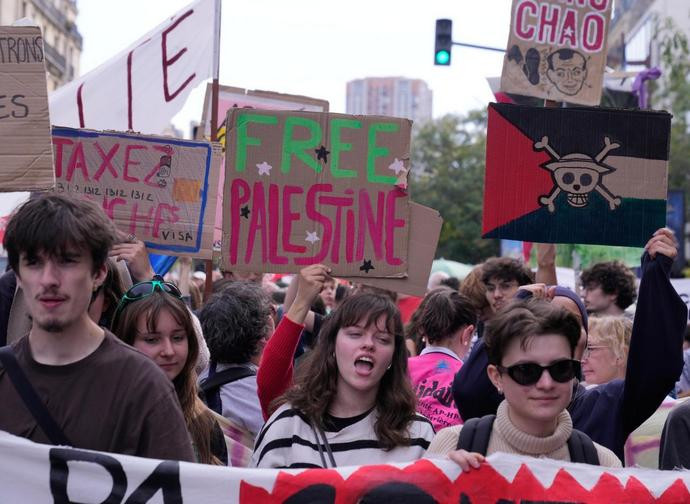Everyone defends Palestinians, but no one wants them
Since 1948, many have spoken in the name of the Palestinian cause, but it has always been exploited for other purposes, from anti-Israeli Arab countries to pro-Palestine supporters and the flotilla movement in recent days.

The poor Palestinians: in words, everyone defends them; in deeds, everyone uses them. Not to mention Israel, where it is clear that, for this government and its supporters, the Palestinians should not even exist. What is happening in Gaza speaks for itself, despite attempts at propaganda to minimise or justify it.
Hamas is also an enemy of the Palestinian population — indeed, perhaps the foremost enemy — not only because the logic of terrorism can only lead to escalating reprisals and revenge. Above all, it is because the militiamen have no qualms about using civilians as shields to maximise the emotional impact of Israeli attacks on world public opinion: the more Palestinian civilians who die, the more condemnation for Israel. The 7 October massacres were also intended to provoke an angry response from Israel, with all that followed in terms of international support for the Palestinian cause.
Nor, it must be said, have the Palestinians ever enjoyed much sympathy among Arab governments. Over the years, the countries of the region have supported the Palestinian cause, but always in an anti-Israeli way. They have always been left as refugees in the countries that received them after the first Arab-Israeli war in 1948, having been driven out or having fled from what had become the State of Israel, and have used the excuse of claiming their return. Moreover, in areas where they were more numerous, they were also poorly tolerated due to their leaders' annoying tendency to establish a state within the state where they are guests.
One need only recall the 'Black September' in Jordan in 1970, which culminated in the bloody suppression of the Palestinians by King Hussein, who narrowly avoided being overthrown. Tens of thousands of Palestinians were killed, a toll comparable to the current situation in Gaza. One also remembers the tensions caused by their presence in Lebanon, which resulted in the bloody Lebanese Civil War (1975–1990). Significantly, even today, other Arab countries are reluctant to openly welcome Palestinians who wish to leave the Gaza Strip. Not even such a harsh reaction has been seen in the Arab world during the last two years of heavy Israeli attacks on the Strip, which suggests that regional political priorities have evidently changed.
As for the so-called pro-Palestinian movements in the West, the situation in Gaza is merely a pretext for social unrest: the recent violence in many Italian cities is proof of this. Even the famous flotilla, intercepted by the Israeli navy, served to promote its organisers and supporters more than the suffering population of Gaza.
Cardinal Pierbattista Pizzaballa, Latin Patriarch of Jerusalem, rightly pointed out that direct confrontation with the Israeli armed forces 'does nothing for the people of Gaza; it does not decisively change the situation in Gaza'. In reality, the Catholic Church is one of the few organisations that truly cares about the fate of the population. It provides daily assistance wherever possible and uses its authoritative voice to draw attention to the suffering of Palestinian civilians and the tragic consequences of the war. Above all, it reminds us that prayer is the first weapon with which to build peace.
Pizzaballa: 'Israel's reasons do not justify Gaza'
While the United Kingdom, Canada, Australia and Portugal join the countries that recognise the Palestinian state, two interviews with the Patriarch of Jerusalem shed light on the situation: the hatred fomenting between the parties makes any prospect of resolving the conflict in the future seem increasingly unlikely.
'Two states’ solution to Israel-Palestine conflict is unrealistic
The rush by Western countries to recognise a Palestinian state does not take into account the complexity of the situation and could have the opposite effect: the acceleration of Israel's military plans. Nor does it consider the decisive religious factor in the conflict.
